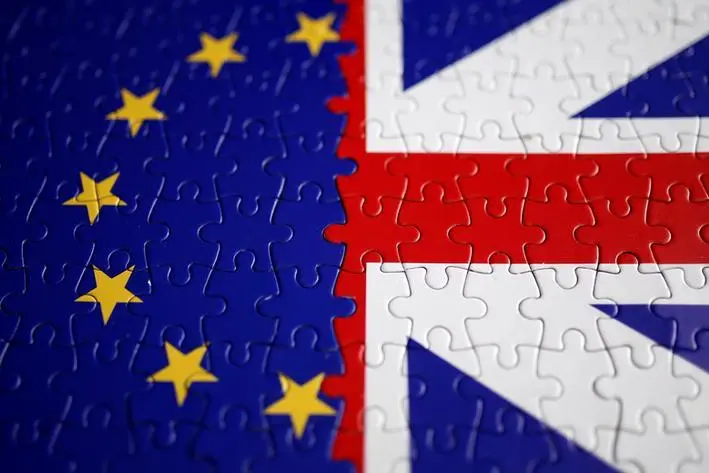PHOTO
LONDON/BRUSSELS- Britain and the European Union are slowly working to overcome differences regarding trade flows between Northern Ireland and the British mainland after a month-long legal dispute and more than a week of rioting in the province.
The EU is expecting a formal reply shortly from London to explain Britain's unilateral change to trading conditions that Brussels said breaches the Brexit divorce deal. However, the stress now is more on dialogue than legal confrontation.
A European Commission spokesman said the two sides were holding technical discussions and there could soon be a meeting of Commission vice president Maros Sefcovic and British negotiator David Frost.
British Prime Minister Boris Johnson's spokesman said the two had spoken on Friday.
"The discussions have been constructive but there are still significant differences that need to be resolved," he said.
Britain's EU withdrawal agreement leaves the British-ruled province of Northern Ireland in the EU single market for goods - given its open border with EU member country Ireland - and so requires checks on goods arriving there from other parts of the United Kingdom.
Some checks were due to start when a grace period expired at the end of March, but Britain decided to extend that to Oct. 1 to help Northern Irish retailers struggling to source supplies. The EU has called this a violation of the Ireland/Northern Ireland protocol in the Brexit agreement.
Britain has questioned why goods such as plant bulbs need rigorous checks to cross the Irish Sea. It also has concerns about plants, seeds, vegetables and agricultural machinery.
EU diplomats cautioned against expecting an immediate breakthrough.
One said there was a will to reach a deal after the eruption of violence, but this would be only through a "longer process". Another said no one in the EU wanted to aggravate the situation.
"Under the radar parties are inching closer to find a more durable accommodation," the diplomat said, adding that a joint solution might emerge in a couple of weeks.
The European Parliament was set to determine on Tuesday whether to vote on the EU-UK trade deal agreed in December. At present, it must do so before the end of April. However, it has suspended proceedings in protest at the British extension.
(Reporting by Elizabeth Piper in London, Philip Blenkinsop and Gabriela Baczynska in Brussels Editing by Mark Heinrich) ((philip.blenkinsop@thomsonreuters.com; +32 2 585 2869; Reuters Messaging: philip.blenkinsop.thomsonreuters.com@reuters.net))





















